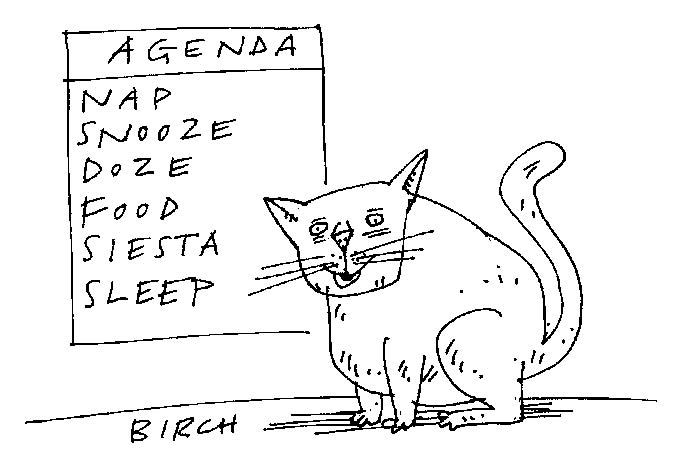‘She hung up and ended the interview,’ said John Humphrys on Saturday morning’s Today programme (Radio 4), sounding rather bemused.
‘She hung up and ended the interview,’ said John Humphrys on Saturday morning’s Today programme (Radio 4), sounding rather bemused. Had he really been cut off mid-round? The battle not yet won. He’d just been talking to Reem Haddad, director of Syrian state television and also, or so the BBC’s website declares, a spokesperson for the Syrian administration (an odd combination of roles, one might think).
Haddad had questioned Humphrys’s use of the number ‘500-odd’ persons as having been killed by state troops during the current uprising in Homs and Deraa. ‘What lovely numbers you give me,’ she said. Humphrys responded from his lofty eminence as the BBC’s man in London by asking her, ‘Can I suggest to you the way it is done in a civilised and democratic country. That is to allow reporters, independent…’
‘You cannot tell me what is civilised,’ Haddad burst in, furiously. ‘You cannot lecture at me. I am sorry I need to end this.’ And that was that. Interview over. Humphrys was left searching for words as he wondered what he had said to provoke such an intemperate response.
Haddad’s reaction was verging on the hysterical. But she had a point. By assuming the moral high ground, Humphrys completely lost his footing. That high ground is not nearly as solidly based as we might think; it’s much more like sand than granite. Humphrys’s tone, his choice of words were straight out of the colonial rulebook, taking us back in time to empire and the caricature of the sly, corrupt, cruel East. In any case, 500 was a suspiciously round figure to insist on as the total number of the dead, dehumanising the report, taking away its awful reality of individuals killed, fathers lost and families destroyed by a single bullet.
Those few minutes of airtime were an object lesson in how not to conduct an interview. Not so much a dialogue in order to seek out the truth but an assertion of a particular viewpoint, with scant attention paid to what the listener might have wanted to hear from Reem Haddad, who may or may not have had something interesting to say. In the end we did not get the chance to find out.
Individual stories from the past 100 years were threaded together in this week’s Woman’s Hour drama (Radio 4), adapted by David Clegg and produced by Charlie Higson and Paul Whitehouse (who are more usually associated with comedy, especially Down the Line). The five short episodes, entitled Ancient Mysteries, play with ideas of memory and lucidity, truth and false witness as a group of elderly people suffering from various degrees of dementia struggle to put together a coherent account of their wildly different lives.
Clegg’s script is based on interviews he has recorded in care homes across the country, where the interviewee has been encouraged to talk without interruption or guidance, intervention or direction. His intention: to capture and preserve the memories and insights of his interviewees before dementia takes over completely. The result is often a random, disconnected stream of thought, but every so often the person who is talking hits on the absolute truth, almost by accident. If you listen hard, though, there’s nothing accidental about the memories, or the collection of them by Clegg. There is a very definite intent at work: to uncover what matters most about a person, which is often not so much those important, significant moments but that elusive thing, the spirit, the essence of someone.
‘I’m sitting here with these sad people throwing a balloon about,’ bewails one woman, over 100 years old now, who was at Bletchley Park, then in Italy working for counter-intelligence. It’s quite a good training for the life of an OAP in a care home, where it pays to keep quiet. ‘I don’t feel like I belong here at all,’ she says, which is hardly surprising for a woman who once drove a car in the Monte Carlo rally. She keeps talking about her father. ‘I don’t know. I lost him somewhere along the way.’ Does she mean her dad? Or a boyfriend, fiancé, husband? All gone. Nothing left in the mind except those random views of life in Rome, in Florence, and that chuckle, that spark of adventure.
What she remembers is rather a jumble, as are the tales told by Kathy Burke’s character, whose brothers, maybe one, maybe two, died at Dunkirk. She remembers the outline, but not ‘the in-between’. What’s left are the bricks without the mortar, and the memories become more and more difficult to make sense of with nothing to join them up. Where is the baby she keeps talking about? Is it hers? What happened? Do we need to know?
Not really. The unanswered questions set us thinking, imagining, wondering what will be left of us when we’re gone — or even before then when our minds have worn out, too weary to make sense of the world we find ourselves in. What will be ‘the history of me’?






Comments